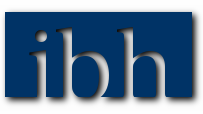 Image by Getty Images via Daylife
Image by Getty Images via DaylifeFriday marked another volatile day for the markets as investors tried to piece together what the heck happened in Thursday's unprecedented sell-off, with the Dow plunging near 1,000 points before staging a dramatic comeback.
With rumors flying of an errant "fat finger" that pushed a "b" for billion versus "m" for million in front of a trading keyboard, a key question has emerged: "Was yesterday's historic market collapse, at least in part, fueled by the rise of the machines?" as Henry asks in the accompanying segment.
Electronic trading "had a role, but I don't think it had front and center" in causing the market collapse, says our guest Mark T. Williams, a Boston University professor and expert in risk management.
Bizarre stock movements
The government including the SEC and CFTC (Commodities Futures Trading Commission) is reviewing the unusual trading activity Thursday. The Nasdaq, where technology stocks are traded, said it would cancel trades that moved shares more than 60 percent up or down at 2:40 pm Thursday, the NYT reported. At that time, shares of both consulting firm Accenture (ACN) and utility Exelon (EXC), for example, both plunged from around $40/share to a penny or less -- for no apparent reason. Nasdaq officials added there were no system issues.
On the big board, shares of Procter & Gamble (PG) swooned 37 percent from $62 to $39 a share. The consumer-goods maker is a big component of the Dow Jones Industrial Average index, which features 30 big, corporate names. PG's stock move alone pushed down the Dow by more than 150 points, causing broad alarm among investors, followed by panicked selling, according to the NYT.
Another example, the Boston Beer Co. (SAM), maker of Sam Adams, evaporated from $63/share to a penny, before closing under $56/share. "This is an example of potential operational risk. Again how can one trade, or a series of trades, influence a global market?" says Tech Ticker guest Williams, author of the just-published book, "Uncontrolled Risk: The Lessons of Lehman Brothers and How Systemic Risk Can Still Bring Down the World Financial System." "This speaks to weakness in this overall system," he says.
Floor traders vs. the rise of computers
Let's take a step back. Years ago, floor traders matched buyers and sellers. It's that old Eddie Murphy movie "Trading Places," where men jockeyed for floor space and used frantic hand gestures to complete transactions. But today, computers dominate much quieter trading floors. High- frequency trading -- rapid, automated buying and selling -- accounts for 50% to 75% of all daily trading volume, as the NYT reports here.
“We have a market that responds in milliseconds, but the humans monitoring respond in minutes, and unfortunately billions of dollars of damage can occur in the meantime,” James Angel, finance professor at Georgetown University’s McDonough School of Business, told the NYT.
Our guest Williams adds market fundamentals did play a role in Thursday's sell-off. Concern grew about European countries' ability to pay down mounting debt including Greece. "The global economy is still very weak," Williams said. "The Greek credit crisis has evolved and now it's the European credit crisis. Potentially Spain is next on the block," Williams adds.
Meanwhile, some senators are pointing to the market volatility as yet another reason to adopt more stringent regulatory reform. Sen. Ted Kaufman told the FT that he would try to introduce a proposal requiring the SEC to report high-frequency trading much sooner.
Click on the player to embed and share the video.


No comments:
Post a Comment